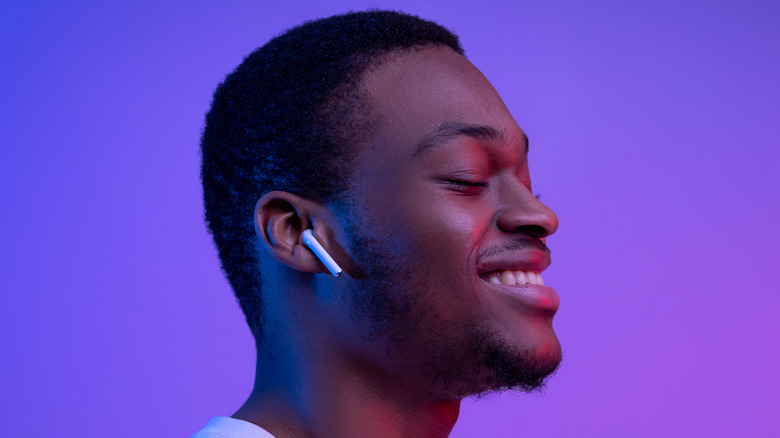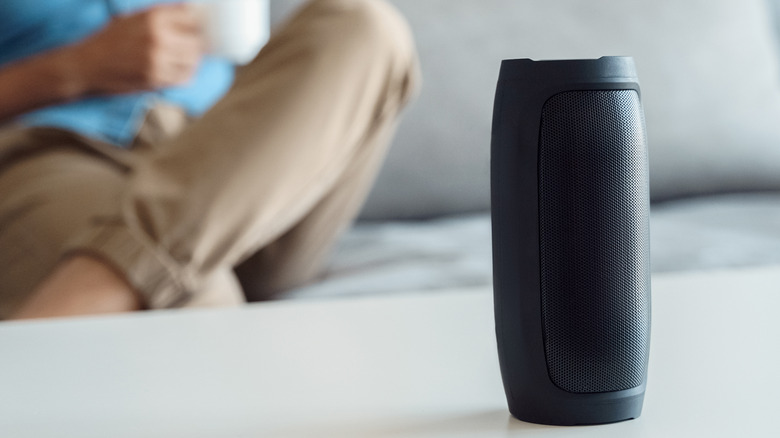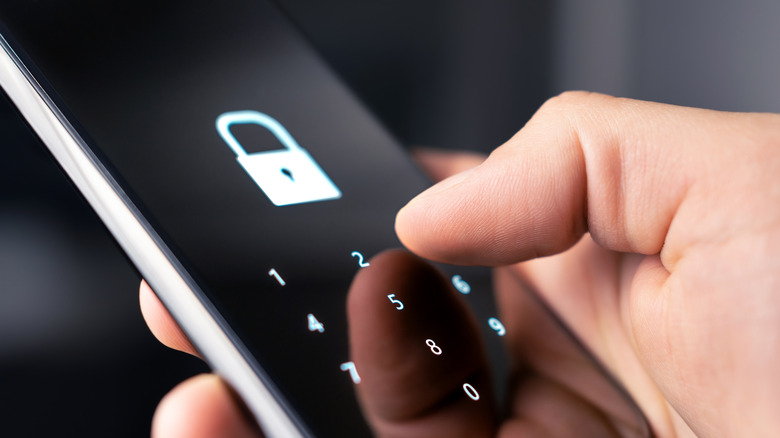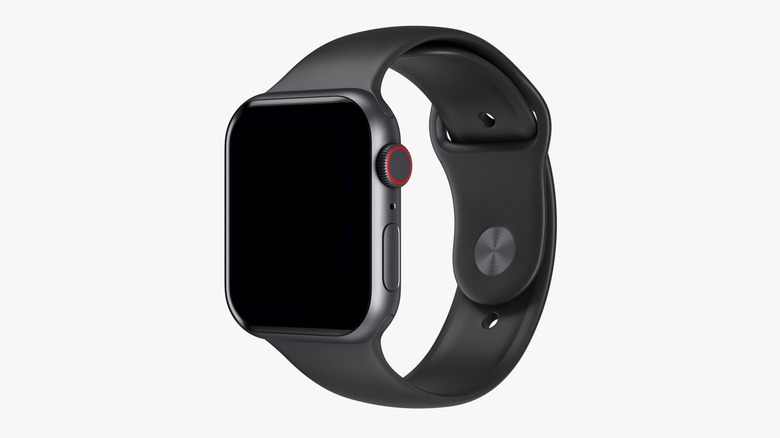Why You Need To Turn Your iPhone's Bluetooth Off When You're Not Using It
Bluetooth has been around for years, but it's more useful than ever, particularly now that most people have ditched wired earbuds for their true wireless counterparts. If you're an iPhone user, there's a good chance you keep your phone's Bluetooth turned on in order to connect with an Apple Watch and quickly pair the device with AirPods. Let's not forget that many modern-day cars are Bluetooth capable, as well, and by keeping your iPhone's Bluetooth turned on, it'll automatically pair with your car's infotainment system when you turn on the vehicle.
The convenience of always-on Bluetooth is great, but having the wireless communication feature enabled when you're not using it isn't necessarily the best security practice. Though it may not hurt your devices to leave Bluetooth on, there are some major reasons why you may want to make a habit of turning it off when you're not connecting to your AirPods, smartwatch, or trying to send files wirelessly to other devices. Sure, remembering to turn the setting off is a hassle, but that may still be better than the potential consequences of leaving it on.
What is Bluetooth?
According to the Bluetooth SIG website, Bluetooth is a short-range wireless technology that uses ultra-high frequency radio waves to shuttle data, such as pictures and music, between two devices. The way Bluetooth differs from other methods of exchanging data like Wi-Fi is that it can only be used between devices that are in close proximity to one another. The technology is used to stream music to wireless headphones, send videos to Chromecast, transfer images from a camera to a computer without a USB cable, and other similar everyday tasks.
Bluetooth is only one example of many different types of wireless communication that offer similar functionality, of course. There's Apple's AirPlay 2, for example, which uses Wi-Fi to connect Apple devices with each other. Bluetooth is by far the most common option available to consumers, however, and nearly every modern gadget ranging from desktop computers to smartphones supports the wireless communication standard.
Dangers of leaving Bluetooth turned on
In September 2017, security company Armis announced the discovery of multiple Bluetooth security issues that left computers and mobile devices around the world vulnerable to hackers. Called BlueBorne, this security problem exposed devices that featured Bluetooth connectivity to different types of cyberattacks, including man-in-the-middle attacks or, in some cases, the complete takeover of devices by a hacker. As security companies tend to do, Armis had alerted Microsoft and Google about the problem, and patches were quickly released. At the time of the discovery, Linux, Android, and Windows were all vulnerable to BlueBorne, as was iOS — though, in that case, only very old devices running iOS 9 or earlier were exposed.
Though years have passed since that announcement, Bluetooth can still be a security risk, as explained by the Federal Communications Commission. On its website, the FCC says that Bluetooth — as with Wi-Fi — can potentially be used by cybercriminals to steal someone's identity and other sensitive information. For that reason, the agency advises the public to turn off Bluetooth when they're not using it; this will help prevent hackers from spoofing other devices that have already been paired with your iPhone, which would give them access to your handset. Not only that, but Info Security Group reports that billions of unpatched devices are still vulnerable to BlueBorne.
Other ways to protect your iPhone
Besides turning off Bluetooth on your iPhone when it's not needed, it's also a good practice to make sure you have the most up-to-date version of iOS installed. This is because Bluetooth has come a long way and older versions of it, as well as the operating system, are the most vulnerable to BlueBorne attacks, according to Geeks For Geeks. If you are using the latest version of iOS, you'll be better protected, but remember that attackers are always finding new ways to target devices.
Ultimately, turning off Bluetooth on an iPhone is very simple and takes only a couple of seconds. To do this, head into Settings, tap Bluetooth, and then toggle off the switch. Alternatively, you can swipe down from the top right corner of the screen to open the Control Center, then tap the button with the Bluetooth logo to turn off the communication feature (via Apple).



